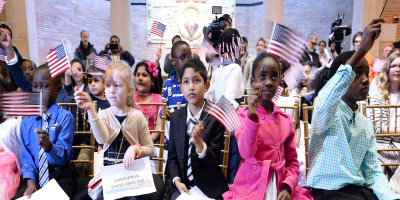NOTE: This letter was published in the April 29, 2021 edition of the Eagle-Tribune.
Last week, the Massachusetts Association of Community Colleges, on behalf of the state’s fifteen community colleges, released this statement, explaining why we are “not contemplating COVID-19 vaccine mandates at this time” for our students who plan to attend in the fall.
A few days ago, the Eagle-Tribune published this editorial recommending, “Community colleges should step up on vaccinations.”
In response, to help clarify the issue, I provided this letter to the editor:
Dear Editor:
I am writing in response to Sunday’s “Our View: Community colleges need to step up on vaccinations.”
As the president of one of the state’s fifteen community colleges who endorsed a recent statement by the Massachusetts Association of Community Colleges letting our students know that we are “not contemplating COVID-19 vaccine mandates at this time,” I agree with your view that everyone should receive the vaccine, for their personal health, and the health of those around them.
Northern Essex Community College, like other community colleges across the state, is encouraging all students and employees to get vaccinated. We have partnered with the Greater Lawrence Family Health Center (GLFHC) to run a daily vaccination clinic on our campus, with appointments reserved specifically for students and staff. (Note: All of the community colleges across the state have offered to host clinics, but many have not found willing local or state partners.)
We have dozens of students and employees from our healthcare programs volunteering or working in the Lawrence General Hospital and GLFHC clinics, and at other sites across the valley.
Whether we end up requiring vaccines this fall or not, I fully expect a majority of the members of our college community will be vaccinated. With most people vaccinated, fewer in-person classes happening and a lot of extra precautions taken on campus (upgraded HVAC systems, air scrubbers, plexiglass barriers, N95 masks, reduced class sizes, physical distancing, etc.) the risks will be vastly reduced.
So, why aren’t we simply requiring vaccinations?
Across the country in 2020, enrollment of low-income students, students of color, and students who are the first in their families to go to college—the population of students most served by community colleges—fell by more than 30%.
And over the past couple of weeks these students, the ones who already face the greatest barriers to their education and to getting vaccinated, and who need us the most, were once again beginning to hear a message from expensive, selective, residential universities that did not apply to them, and we wanted them to know they would be welcome on our campuses.
Some of the first universities to announce their plans to require vaccinations were right here in Massachusetts: Boston University and Northeastern. They were quickly followed by Brown University and the University of Notre Dame.
What do these places have in common?
They are all private, residential, well-funded universities, eager to welcome students back into dormitories again.
The Chronicle of Higher Education is keeping a running list of Colleges That Will Require Students or Employees to Be Vaccinated Against Covid-19. As of April 27, there were only 90 institutions or systems of higher education nationwide on this list.
Of those, 79 are private, only 11 are public, and none are community colleges. Every one is a four-year, residential university.
Notably, only 25, less than a third, are also requiring employees to be vaccinated.
There is no great secret as to why these institutions are making these decisions and announcing them now. While they may well be concerned about public health on campus and in nearby communities, they are also facing the reality that their budgets rely increasingly on dormitory and meal plan revenue.
In a normal year, “auxiliary” revenue from dorms and dining halls can account for up to twenty-percent or more of a public, four-year university’s budget; and over thirty-percent at small, private colleges. It is not surprising, then, that these institutions would take whatever steps are necessary to coax students back into campus housing arrangements that cost, typically, between $12,000-15,000 per academic year.
A local pandemic example may be helpful: A few months ago, the University of Massachusetts announced a projected $335 million budget shortfall for this year. An estimated $235 million of that loss, just over 70%, is in dormitory and dining revenue.
Community colleges are mostly underresourced and we have a great many funding needs, but in Massachusetts, and most other places, we do not have dormitories.
Beyond universities it is worth considering:
There is no federal vaccine mandate.
There is no Commonwealth of Massachusetts vaccine mandate.
There is no requirement by the Massachusetts Department of Elementary and Secondary Education that high school students who are sixteen or older, and eligible to receive a vaccine, will be required to do so.
And while most businesses are encouraging employees to get vaccinated, and some companies are even setting up clinics on site and offering incentives such as paid time off or cash bonuses, very few have so far required vaccinations, and several surveys suggest that fewer than ten-percent will.
In my Running the Campus blog and in frequent contributions I make to local and national publications, I write often about how community college students are different, and how not all institutions of higher education are the same—perhaps especially right now.
The COVID-19 pandemic has been more than a year of constant change, and by later this summer, our community colleges, including NECC, may reconsider this position, as we said in our public statement; but every step of the way, we will be making decisions about how we return to our new normal again with the unique needs of our students and the communities we serve first and foremost in our minds.






